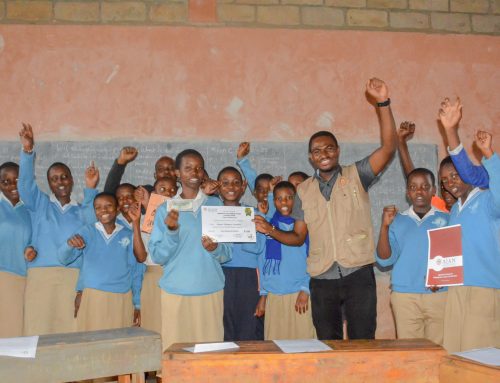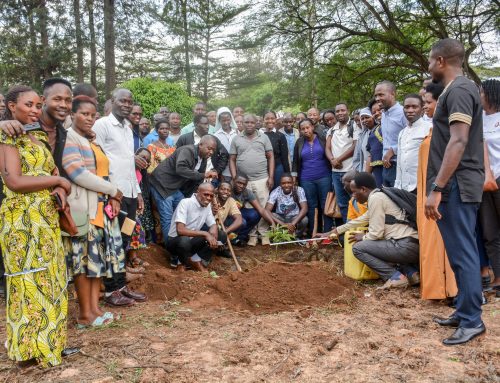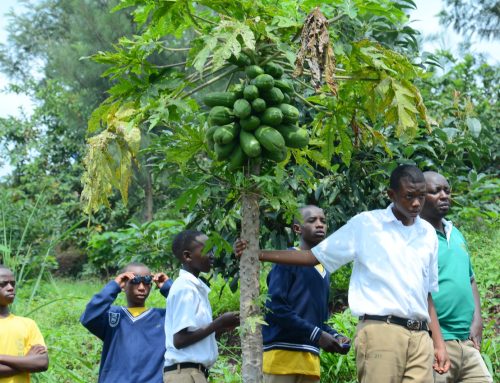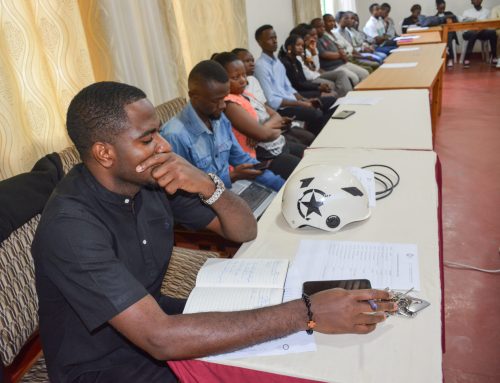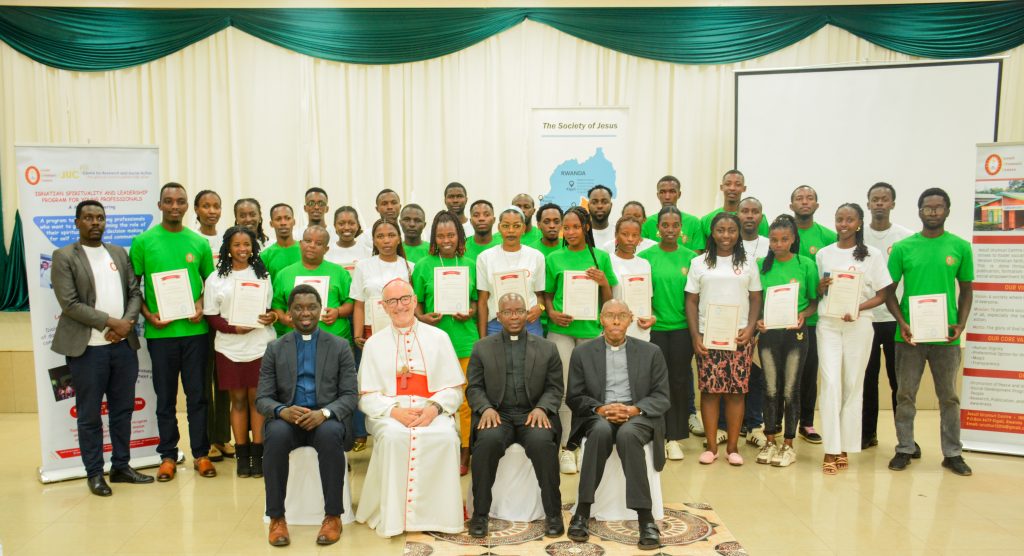
Sitting from left to right; Fr Patrice Ndayisenga, SJ, HE Michael Cardinal Czerny, SJ, Fr Fabien Gasigwa, SJ and Fr Augustin Karekezi, SJ
In a world where youth unemployment continues to surge, Jesuit Urumuri Centre (JUC)—an initiative rooted in research and social justice—cannot sit idle and only watch. Research-based data have shown that a segment of young adults across Rwanda suffer from poverty, high unemployment, and a lack of skills relevant to market needs (Rwanda Labour Force Survey, 2024).
Furthermore, the need for a new approach to uplift young adults is underscored by the 2024 Labour Force Survey conducted by the National Institute of Statistics of Rwanda, which found that unemployment was very high among individuals with upper secondary education (27.1%), 22.7% for university graduates, and 16.1% for lower secondary. These figures reveal a critical mismatch between academic learning and market-ready skills, highlighting the need for innovative and practical approaches.
JUC, through its mission of promoting the integral development of all—especially the neediest—responded to those alarming findings by launching, in 2020, an innovative initiative dubbed the Youth Empowerment for Social Innovation & Entrepreneurship Program. The program equips young people with the knowledge, skills, and resources aimed at transforming them into job creators rather than job seekers.
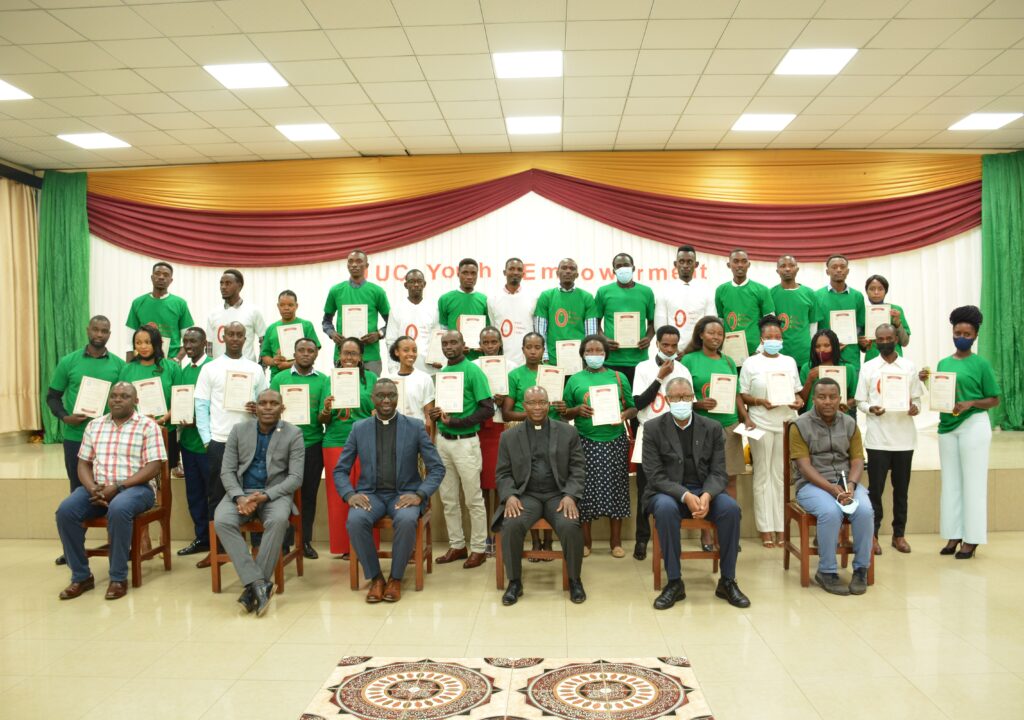
Graduation of the 1st cohort, 2020. Sitting from left to right; Mr Anaclet Bagirishya, Dr Patrice Habinshuti, Fr Patrice Ndayisenga, SJ, Fr Fabien Gasigwa, SJ, Fr Theoneste Nkeramihigo, SJ and Fr Dominique Habyarimana, SJ
The program offers an intensive three-month training to 40 participants in each cohort, navigating practical entrepreneurial skills, innovative business ideas, and the challenges of starting a venture. Among them, 15 outstanding participants are selected to enter a six-month incubation phase, receiving both mentorship and start-up capital to bring their business ideas to life.
“In my formal education, I studied accounting. Although we touched on business and communication, most of my practical knowledge came from JUC. They truly empowered us. After receiving a business development grant, I was able to rent a kiosk — before that, I was simply sourcing goods from others. I used the grant to rent a kiosk for 50,000 RWF and paid two months’ rent. Previously, I was selling under someone else’s roof, earning just 3,000 to 4,000 RWF profit a day. After renting the kiosk for storage, I never earned less than 8,000 RWF as daily profits. Today, I employ a porter and a guard,” said Rosette Pfukamusenge, a beneficiary of the 4th cohort with a vegetable selling point in Kinyinya Sector.
Since 2020, five cohorts have graduated, and over 139 young people have successfully started their own small businesses across a diverse range of sectors—from technology and agriculture to livestock, beekeeping, pottery, arts, and weaving. The program is proving what practical entrepreneurial training can do to bridge the gap between education and employment.
“Eventually, I envision having a small factory that processes vegetables—producing tomato paste or juice—for local and export markets. This is the future I am working toward. Since the time I left JUC, I’ve made tremendous progress. I now employ two full-time workers, and I hire seasonal laborers depending on the stage of production,” said Gerard Amizero, a beneficiary with Organic Farming Initiatives in Rwamagana District.
This initiative does more than teach business; it instills social values, empowering youth to create ventures that benefit their communities as much as themselves. Each phase of the program provides guidance, mentorship, and financial support—turning bright ideas into sustainable realities that generate income, create jobs, and inspire others.
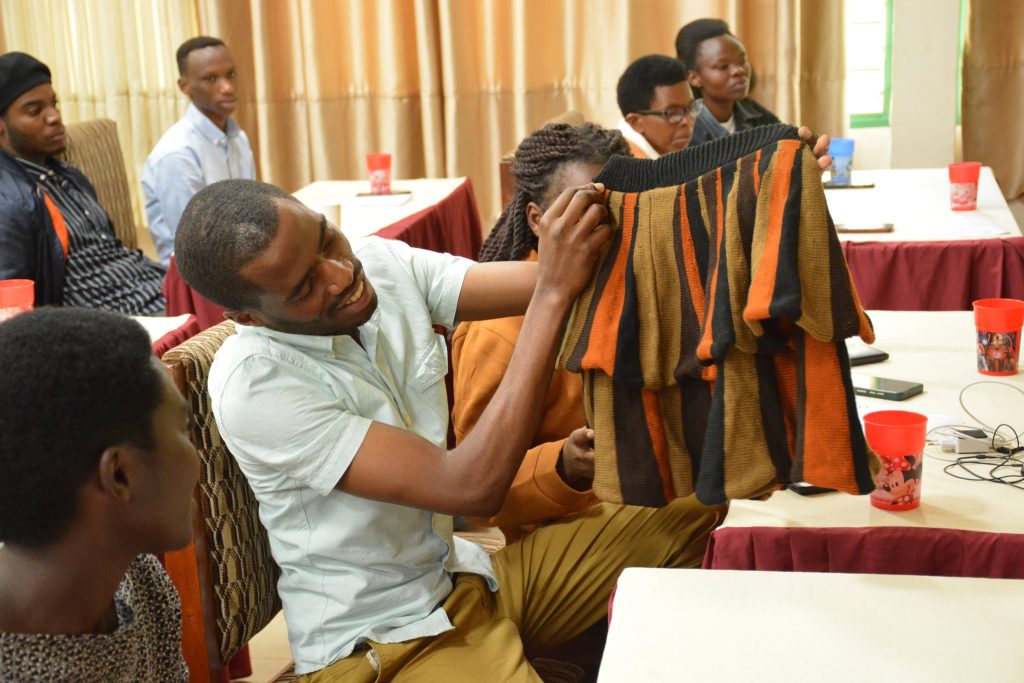
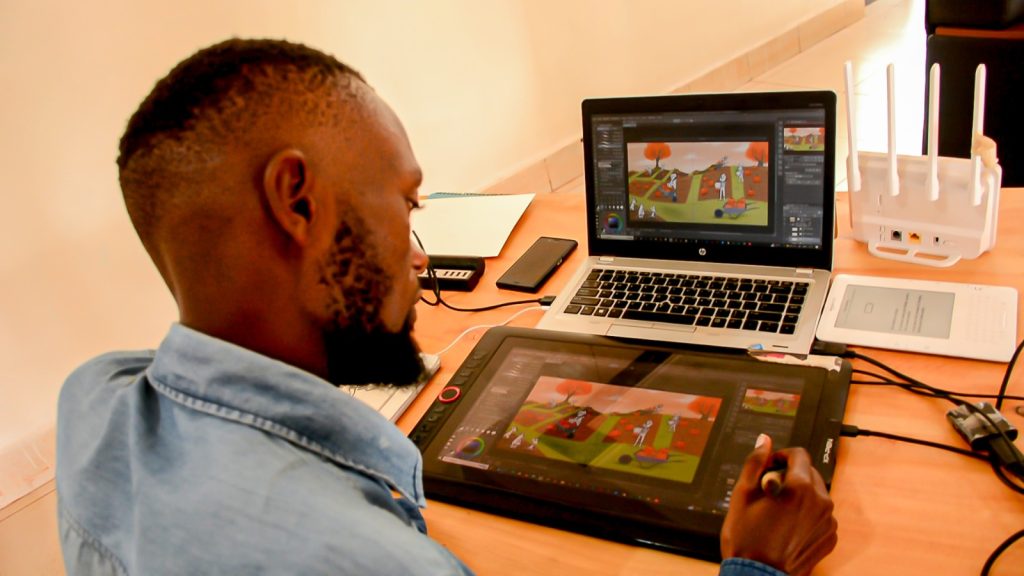
By equipping young people with tools, mentorship, and capital, Jesuit Urumuri Centre is rewriting the narrative of youth unemployment. Graduates of the program are no longer waiting for opportunities—they are creating them, launching ventures that spark economic activity and inspire a new generation of job creators.
“Those who are unemployed or underemployed suffer the profound negative consequences that such a situation creates in a personality, and they run the risk of being marginalized within society, of becoming victims of social exclusion.” (CSDC #289)
Yunusu Dukorerimana
Communications Intern







